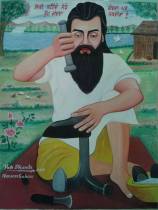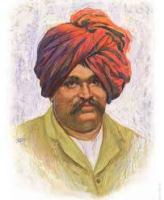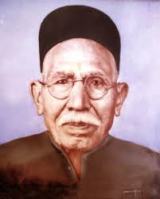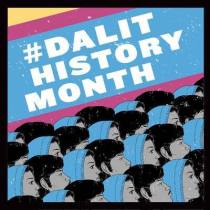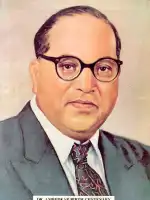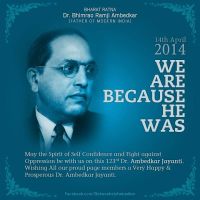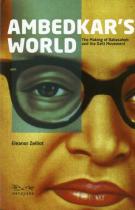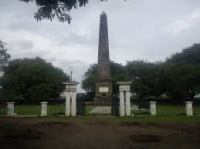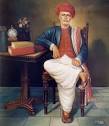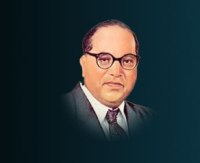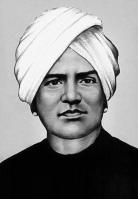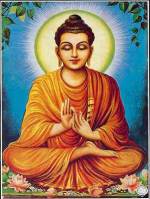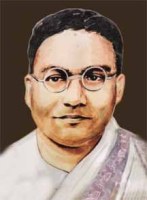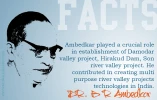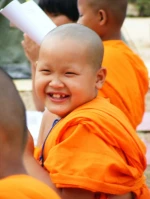By Prof. Eleanor Zelliot
A talk at the Columbia University Ambedkar Centenary, 1991
Introductiory remarks
Dr. Ambedkar was one of the first (and one of the few) Indian leaders to be educated in the United States. I am not sure what influence his years at Columbia University in New York City had on his life, but I know we can be proud to claim some part of this remarkable man’s early development. Two of the qualities which mark his life and career – optimism and pragmatism – may have been enhanced by his contact with this country, which prides itself on its charactersitics of hope and practicality.
Also Read – Dr. Ambedkar in Hungary and Dr. Ambedkar in Germany
The three years Ambedkar spent at Columbia, 1913-1916, awakened, in his own words, his potential. Columbia was in its golden age, and a list of Ambedkar’s professors reads like a catalog of early 20th-century American educators. The transcript of Ambedkar’s work at Columbia reveals that he audited many classes, more than he could have taken for grades, including such subjects as “railroad economics.” Later, Ambedkar wrote, “The best friends I have had in my life were some of my classmates at Columbia and my great professors, John Dewey, James Shotwell, Edwin Seligman and James Harvey Robinson. II (Columbia Alumni News, December 19, 1930).
Although it was Edwin Seligman, Professor of Economics, with whom Ambedkar kept in touch after he left Columbia and to whom he sent students when he taught at Sydenham college in Bombay, John Dewey seems to have had the greatest influence on him. Dewey’s pragmatic philosophy, his theories associated with optimistic, pragmatic American democracy, which preached (although it did not always practice) equality, no barriers to upward mobility, the use of machinery to produce leisure, and an attitude of respect for every individual.
Ambedkar’s first political party, the Independent Labour Party founded in 1936, took its name from British politics. But two things lessened the importance of Britain for Ambedkar: the colonial presence of the British in India, and the preference of British liberals for Gandhi and his non-violent direct action campaigns for independence over Ambedkar and the slow parliamentary path. And it also seems likely that American optimism, and the lack of an obvious class system in America, met a natural response in Ambedkar.
Ambedkar’s American contacts did not end when he left Columbia University in June, 1916, although one must admit they became minimal. He continued to correspond with Edwin Seligman, his mentor in Economics at Columbia, and occasionally recommended Indian students to Seligman. In 1930, Ambedkar wrote an article for the Columbia alumni magazine which reveals quite a sentimental attachment: “The best friends I have had in my life were some of my classmates at Columbia and my great professors, John Dewey, James Shotwell, Edwin Seligman and James Harvey Robinson.” In 1952, Ambedkar went back to Columbia to receive an honorary degree of Doctor of Laws and it is clear that this recognition of his work meant much to him. It was in this period of the early 1950’s that Ambedkar was publicly critical of India’s foreign policy of non-alignment, which seemed to him to cut India off from American contacts.
Also Watch – Tribute to Dr Ambedkar at Columbia University (USA)
I shall end this introduction with two stories, since this is not so much a scholarly tract as an essay which attempts to explore an American-Indian cultural interaction in a personal way. Mrs. Savita Ambedkar tells a touching story of Ambedkar’s happily imitating John Dewey’s distinctive classroom mannerisms – thirty years after Ambedkar sat in Dewey’s classes. It is impossible to find in Ambedkar’s life story any hint of a guru or a personality which dominated him, but here at least is a suggestion that he was fond of both Dewey the philosopher and Dewey the man.

Balchandra Mungekar, vice chancellor of Bombay University, points to a statue of B.R. Ambedkar at Columbia University
The other story concerns a letter of recommendation written about Ambedkar by Edward Cannon, Professor of Political Economy in the University of London, to the head of Sydenham College, where Ambedkar applied for a teaching position in 1918. Professor Cannon wrote: “I don’t know anything about Ambedkar except that he came to do a thesis and attacked it and me in a way which showed he had quite extraordinary practical ability…. I rather wonder if he is a pure Indian; his character is rather Scotch-American.” There is absolutely no doubt that Ambedkar was pure Indian, and no one who knew his background and the history of his caste would assign any other nationality to him. But this depiction of his character as “Scotch-American” rather delights me. Ambedkar’s pragmatism, his wide-ranging intellectual interests, his realistic approach to social matters, his uncompromising attitude toward those he felt were his opponents – all these factors make his character and work very understandable to an American. Even his bitterness can be understood by an American who has seen social injustice at work in the midst of American democracy. I am tempted to end this introduction to my essay with the thought that American influence on Ambedkar really counted for very little. It is more likely that in those early years in America his own natural proclivities and interests found a healthy soil for growth, and the experience served chiefly to strengthen him in his life-long battle for dignity and equality for his people.
The American Experience of Dr. B.R. Ambedkar
Very few of India’s leaders have been educated in America. In the British period, England and to a lesser extent France and Germany were the focal points for overseas study. Even today, when Indian students flock to America, their education is generally in the field of technology or science, and they do not enter politics. As far as I have been able to find out, only three men well known in public life have been thoroughly exposed to an American experience: Jay Prakash Narayan; the late Chief Minister of the Punjab, S. Pratap Singh Kairon; and Dr. B. R. Ambedkar. An American inevitably wonders what effect his country has had on the lives and thinking of these men.

The Columbia University conferred an honorary Degree of Doctor of Laws on Dr.Ambedkar
Also check – LL.D. Degree Certificate of Dr. B. R. Ambedkar from Columbia University
It is clear that J. P. Narayan’s direct contact with Amecican poverty during the Depression era and with American radical thinkers somewhat influenced the development of his socialist attitudes. It is possible that Kairon learned some of his expertise with mass politics from his interval in America. In the case of Dr. Ambedkar, the influence seems to be chiefly in developing his commitment to a pragmatic, flexible democratic system. Ambedkar spent the years from 1913 to 1916 at Columbia University in New York City. There is little material on his political thought from the pre-1913 period with which to compare his post-1916 writings, but even so I would like to suggest that the American experience did influence the thought and action of this unusually gifted and innovative son of Bharat.
Continue reading →








